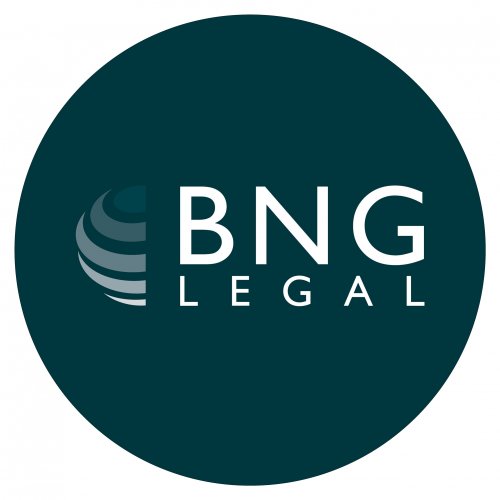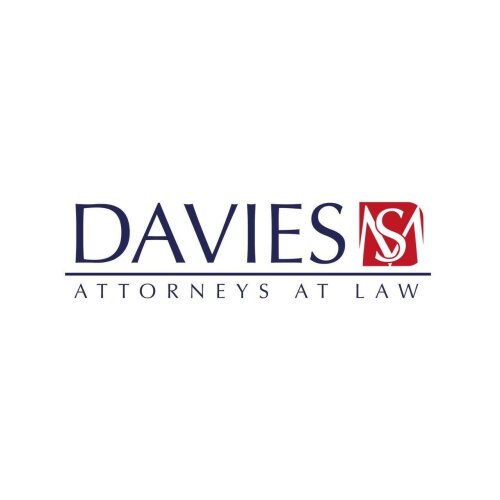Best Natural Resources Lawyers in Cambodia
Share your needs with us, get contacted by law firms.
Free. Takes 2 min.
Or refine your search by selecting a city:
List of the best lawyers in Cambodia
About Natural Resources Law in Cambodia
Cambodia is endowed with a wealth of natural resources, including forests, minerals, water, and agricultural land. These resources play a crucial role in the country's economy and development. However, the management and utilization of these resources are governed by a complex set of laws and regulations. Natural resources law in Cambodia aims to ensure sustainable use and conservation of resources while balancing economic growth and environmental protection. The legal framework encompasses various areas, such as land use, environmental protection, mining, forestry, and water resources management.
Why You May Need a Lawyer
Engaging a lawyer who specializes in natural resources law may be necessary in several scenarios, including, but not limited to:
- Land Disputes: Disagreements over land ownership and use often arise due to unclear land titles or encroachment issues.
- License and Permit Applications: Navigating the regulatory framework for acquiring permits for resource extraction can be complex and time-consuming.
- Environmental Compliance: Ensuring that all activities are compliant with existing environmental laws and regulations to avoid sanctions.
- Community Rights: Safeguarding the rights and interests of communities affected by resource exploitation projects.
- Investment Agreements: Structuring and negotiating agreements for foreign and local investments in natural resource projects.
Local Laws Overview
The key aspects of local laws relating to natural resources in Cambodia include:
- The 2001 Land Law: This law governs land ownership, management, and use in Cambodia, providing definitions and rights for private and public land.
- The 2002 Forestry Law: Regulates the management and protection of forests, including sustainable harvesting and conservation initiatives.
- The 2000 Law on Mineral Resource Management and Exploitation: Governs the exploration, licensing, and operation of mining activities, emphasizing sustainable practices and environmental protection.
- The 1996 Law on Environmental Protection and Natural Resource Management: Establishes guidelines to improve environmental protection and ensure sustainable development.
Frequently Asked Questions
What is required to obtain a land title in Cambodia?
You need to provide documentation such as proof of ownership, identification, and application forms to the relevant municipal or district land department.
How can I acquire a permit for a mining project?
Applicants must submit detailed proposals and environmental impact assessments to the Ministry of Mines and Energy for approval.
Are there restrictions on foreign ownership of land?
Yes, foreign nationals are prohibited from owning land but can instead hold long-term leases or invest through a Cambodian-incorporated company.
How are communities protected under natural resources law?
The law seeks to protect community rights by recognizing communal land and obligating developers to conduct environmental and social impact assessments.
What penalties exist for illegal logging?
Penalties include significant fines, imprisonment, and the confiscation of machinery and illegally logged timber.
How does the government regulate fishing activities?
The government issues fishing licenses and enforces regulations to balance economic interests with the preservation of marine ecosystems.
What legal actions can be taken against environmental harm?
Affected parties can file complaints with relevant authorities or pursue litigation for damages and enforcement of environmental protection laws.
What is the role of Environmental Impact Assessments (EIA)?
EIAs are mandatory for certain projects to evaluate and mitigate potential environmental effects before carrying out development activities.
How is water resource management handled legally?
Water resources are managed under various laws that oversee utilization permits, conservation, and pollution control.
What is the process for dispute resolution in natural resources cases?
Dispute resolution can occur through negotiation, mediation, or litigation in both administrative and judicial settings.
Additional Resources
Here are some resources and organizations that can offer guidance and assistance:
- Ministry of Environment: Oversees environmental protection laws and EIAs.
- Ministry of Mines and Energy: Manages regulations around mineral resources and energy projects.
- Ministry of Agriculture, Forestry and Fisheries: Responsible for policies and regulations related to forestry and fisheries.
- Local NGOs: Various non-profit organizations provide advocacy and support related to community rights and environmental issues.
Next Steps
If you require legal assistance in navigating Cambodia's natural resources laws, consider the following steps:
- Contact a qualified lawyer with expertise in natural resources law for consultation.
- Gather all relevant documents, permits, and evidence related to your issue or project.
- Identify the key objectives and desired outcomes of your legal actions or negotiations.
- Engage with governmental and non-governmental organizations to seek additional support or mediation services.
Lawzana helps you find the best lawyers and law firms in Cambodia through a curated and pre-screened list of qualified legal professionals. Our platform offers rankings and detailed profiles of attorneys and law firms, allowing you to compare based on practice areas, including Natural Resources, experience, and client feedback.
Each profile includes a description of the firm's areas of practice, client reviews, team members and partners, year of establishment, spoken languages, office locations, contact information, social media presence, and any published articles or resources. Most firms on our platform speak English and are experienced in both local and international legal matters.
Get a quote from top-rated law firms in Cambodia — quickly, securely, and without unnecessary hassle.
Disclaimer:
The information provided on this page is for general informational purposes only and does not constitute legal advice. While we strive to ensure the accuracy and relevance of the content, legal information may change over time, and interpretations of the law can vary. You should always consult with a qualified legal professional for advice specific to your situation.
We disclaim all liability for actions taken or not taken based on the content of this page. If you believe any information is incorrect or outdated, please contact us, and we will review and update it where appropriate.
Browse natural resources law firms by city in Cambodia
Refine your search by selecting a city.












